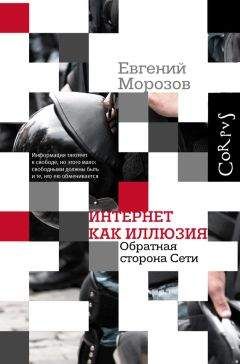Show Power Pyramid Makes Local Leaders Reluctant to Act // Bloomberg News, August 25, 2010.
Baber, Z. Engendering or Endangering Democracy? The Internet, Civil Society and the Public Sphere // Asian Journal of Social Science 30, no. 2 (2002): 287–303.
Bambauer, Derek E. Cybersieves // Duke Law Journal 59 (2009). Becker, J. Lessons From Russia: A Neo-Authoritarian Media System //
European Journal of Communication 19, no. 2 (2004): 139. Bhagwati, Jagdish Made in China // New York Times Book Re-view, February 18, 2007.
Blaydes, Lisa Authoritarian Elections and Elite Management: Theory and Evidence from Egypt. Presented at the Conference on Dictator-ships: Their Governance and Social Consequences, Princeton Univer-sity, April 2008. www.princeton.edu/~piirs/Dictatorships042508/ Blaydes.pdf.
Boix, Carles, and Milan Svolik The Foundations of Limited Authoritarian Government: Institutions and Power-Sharing in Dic-tatorships // Social Science Research Network Working Paper Se-ries, June 1, 2010.
Bueno De Mesquita, Ethan Regime Change and Revolutio-nary Entrepreneurs // American Political Science Review 104 (3): 446–466.
Builder, Carl H., and Steven C. Bankes The Etiology of European Change. Santa Monica, CA: RAND, 1990.
Burrows, Peter Internet Censorship, Saudi Style // Business Week, November 13, 2008.
Cheng, C. T. New Media and Event: A Case Study on the Power of the
Internet // Knowledge, Technology & Policy 22, no. 2 (2009): 145–153. Chiou, Jing-Yuan, Dincecco, Mark, and David Rahman
Private Information and Institutional Change: The Case of Foreign Threats // Social Science Research Network Working Paper Series, December 22, 2009.
Collier, D., and S. Levitsky Democracy with Adjectives: Con-ceptual Innovation in Comparative Research // World Politics 49, no. 3 (1997): 430–451.
Converse, P. E. Power and the Monopoly of Information // The
American Political Science Review 79, no. 1 (1985): 1–9. Cooper, B. The Western Connection: Western Support for the East Ger-man Opposition // German Politics and Society 21, no. 4 (2003): 74–93.
Corrales, J., and F. Westhoff Information Technology Adoption and Political Regimes // International Studies Quarterly 50, no. 4 (2006): 911–933.
De Mesquita, B. B., and G. W. Downs Development and De-mocracy // Foreign Affairs 84, no. 5 (2005): 77–86.
Deibert, Ronald, Palfrey, John G., Rohozinski, Rafal, and Jonathan Zittrain Access Denied: The Practice and Policy of Global Internet Filtering. Cambridge, MA: MIT Press, 2008.
Deibert, Ronald, Palfrey, John G., Rohozinski, Rafal, and Jonathan Zittrain Access Controlled: The Shaping of Power, Rights, and Rule in Cyberspace. Cambridge, MA: MIT Press, 2010.
Drezner, Daniel Weighing the Scales: The Internet’s Effect on State-Society Relations // Brown Journal of World Affairs 16, no. 2
(2010).
Egorov, G., Guriev, S., and K. Sonin Why Resource-Poor Dicta-tors Allow Freer Media: A Theory and Evidence from Panel Data // American Political Science Review 103, no. 04 (2009): 645–668.
Elhadj, Elie The Islamic Shield: Arab Resistance to Democratic and Religious Reforms. Boca Raton, FL: BrownWalker Press, 2007. Fletcher, Owen China Pays Web Users to Find Porn Amid Crack-down // IDG News Service, January 19, 2010.
Friedman, Thomas L. The Lexus and the Olive Tree. New York: Farrar, Straus, Giroux, 2000.
Friedrich, Carl Joachim, and Zbigniew Brzezinski To-talitarian Dictatorship and Autocracy. Cambridge, MA: Harvard University Press, 1965.
Gandhi, J., and A. Przeworski Authoritarian Institutions and the Survival of Autocrats // Comparative Political Studies 40, no. 11 (2007): 1279.
Gans-Morse, J. Searching for Transitologists: Contemporary Theories of Post-Communist Transitions and the Myth of a Dominant Para-digm // Post-Soviet Affairs 20, no. 4 (2004): 320–349.
Geddes, B. Why Parties and Elections in Authoritarian Regimes? Pre-sented to the Annual Meeting of the American Political Science Association, 2005.
Habermas, J. Political Communication in Media Society: Does De-mocracy Still Enjoy an Epistemic Dimension? The Impact of Norma-tive Theory on Empirical Research // Communication Theory 16, no. 4 (2006): 411–426.
He, B., and M. E. Warren Authoritarian Deliberation: The Deli-berative Turn in Chinese Political Development / In: Proceedings of the American Political Science Association Annual Meeting, vol. 28. Boston: American Political Science Association, 2008.
Hearn, K. The Management of China’s Blogosphere Boke (Blog) // Continuum 23, no. 6 (2009): 887–901.
Hearn, K., and B. Shoesmith Exploring the Roles of Elites in Managing the Chinese Internet // Javnost – The Public, Vol 11 (2004) 101–114.
Hille, Kathrin The Net Closes // Financial Times, July 18, 2009. Hoover, D., and D. Kowalewski Dynamic Models of Dissent and Repression // Journal of Conflict Resolution 36, no. 1 (1992): 150–182.
Huang, Haifeng Media Freedom, Governance, and Regime Stabi-lity in Authoritarian States. Unpublished Paper, 2008.
Huntington, Samuel P. The Third Wave: Democratization In the Late Twentieth Century. Norman: University of Oklahoma Press, 1993.
Jiang, M., and H. Xu Exploring Online Structures on Chinese Go-vernment Portals: Citizen Political Participation and Government Legitimation // Social Science Computer Review 27, no. 2 (2009): 174–195.
Johnson, Erica, and Beth Kolko E-Government and Trans-parency in Authoritarian Regimes: Comparison of National– and City-Level E-Government Websites in Central Asia. Presented at the Annual Meeting of the International Studies Association, 2010.
Johnston, H., and C. Mueller Unobtrusive Practices of Con-tention in Leninist Regimes // Sociological Perspectives 44, no. 3 (2001): 351–375.
Kaplan, Jeremy A. China Expanding Censorship to Text Messages // FOX News.com, January 20, 2010. www.foxnews.com/scitech/ 2010/01/20/china-expanding-censorship-text-messages/.
Kapstein, E. B., and N. Converse Why Democracies Fail // Journal of Democracy 19, no. 4 (2008): 57–68.
Kaufman, Stephen Bloggers in Mauritania Form a Union // America.gov, August 8, 2008. www.america.gov/st/democracy-english/2008/April/20080408172637liameruoy0.9660608.html.
Kennedy, J. J. Maintaining Popular Support for the Chinese Com-munist Party: The Influence of Education and the State-Controlled Media // Political Studies 57, no. 3 (2009): 517–536.
Kluver, R. The Architecture of Control: A Chinese Strategy for E-Go-vernance // Journal of Public Policy 25, no. 1 (2005): 75–97.
Kluver, R. US and Chinese Policy Expectations of the Internet // Chi-na Information 19, no. 2 (2005): 299.
Kluver, R., and C. Yang The Internet in China: A Meta-Review of
Research // Information Society 21, no. 4 (2005): 301–308. Kramer, Andrew E., and Jenna Wortham Professor Main
Target of Assault on Twitter // New York Times, August 7, 2009. Kristof, Nicholas D. Death by a Thousand Blogs // New York
Times, May 24, 2005.
Lacharite, J. Electronic Decentralisation in China: A Critical Analysis of Internet Filtering Policies in the People’s Republic of China // Australian Journal of Political Science 37, no. 2 (2002): 333–346.
Lagerkvist, J. The Techno-Cadre’s Dream: Administrative Reform by Electronic Governance in China Today? // China Information 19, no. 2 (2005): 189.
Latham, K. SMS, Communication, and Citizenship in China’s Information Society // Critical Asian Studies 39, no. 2 (2007): 295–314.
Levitsky, S., and L. A. Way The Rise of Competitive Authoritari-anism // Journal of Democracy 13, no. 2 (2002): 51–65.
Levy, Clifford J. Videos Rouse Russian Anger Toward Police // New York Times, July 27, 2010.
Li, S. The Online Public Space and Popular Ethos in China // Media, Culture & Society 32, no. 1 (2010): 63.
MacKinnon, R. Flatter World and Thicker Walls? Blogs, Censorship and Civic Discourse in China // Public Choice 134, no. 1 (2008): 31–46.
MacKinnon, R. Liberty or Safety? Both – or Neither // IEEE Spec-trum, May 2010.
Magaloni, B., and J. Wallace Citizen Loyalty, Mass Protest and Authoritarian Survival. Presented at the Conference on Dictator-ships: Their Governance and Social Consequences, Princeton Uni-versity, April 2008.
Markoff, J. Iranians and Others Outwit Net Censors // New York Times, April 30, 2009.
Medvedev Looks to Singapore for Electronic Efficiency // Reuters, No-vember 11, 2009.
Meng, B. Moving Beyond Democratization: A Thought Piece on the China Internet Research Agenda // International Journal of Com-munication 4 (2010): 501–508.
Miradova, M. Azerbaijan: Webcams Used for “Transparent” Munici-pal Elections // EurasiaNet.org, December 22, 2009.
Moore, M. China’s Internet Porn Reward Drives Rise in Online Erot-ica Searches // Daily Telegraph, December 7, 2009.
O’Brien, K. J. How Authoritarian Rule Works // Modern China 36, no. 1 (2010): 79–86.
Our Chip Has Come In // New Republic 200, no. 24 (1989): 7–8. Pickel, A. Authoritarianism or Democracy? Marketization as a Politi-cal Problem // Policy Sciences 26, no. 3 (1993): 139–163.
Press Conference with Secretary Gates and Adm. Mullen. Transcript.
U. S. Department of Defense, June 18, 2009.
Ramstad, E. Gulags, Nukes and a Water Slide: Citizen Spies Lift
North Korea’s Veil // Wall Street Journal, May 22, 2009. Roberts, H. China Bans the Letter “F” // Watching Technology, June 12,
2009. blogs.law.harvard.edu/hroberts/2009/06/12/china-bans-the-letter-f/.
Rodan, G. The Internet and Political Control in Singapore // Political Science Quarterly 113, no. 1 (1998): 63–89.
Rosen, S. Is the Internet a Positive Force in the Development of Civil Society, a Public Sphere, and Democratization in China? // International Journal of Communication 4 (2010): 509–516.
Rothstein, B. Creating Political Legitimacy: Electoral Democracy Versus Quality of Government // American Behavioral Scientist 53, no. 3 (2009): 311.
Rubin, M. The Telegraph, Espionage, and Cryptology in Nineteenth Century Iran // Cryptologia 25, no. 1 (2001): 18–36.
Russian Opposition Newspaper Comes Under Hacker Attack // Agence France-Presse, January 26, 2010.
Satarov, G. Don’t Expect Miracles From Russia’s “Authoritarian Mo-dernization” // Radio Free Europe / Radio Liberty, February 21, 2010.
Saudi Religious Police Launch Facebook Group // Al Arabiya, Novem-ber 8, 2009.
Saunders, R. Wiring the Second World: The Geopolitics of Information and Communications Technology in Post-Totalitarian Eurasia // Russian Cyberspace Journal 1 (2009).
Schucher, G. Liberalization in Times of Instability: Margins of Un-conventional Participation in Chinese Authoritarianism // Social Science Research Network Working Paper Series, December 5, 2009.
Schuppan, T. E-Government in Developing Countries: Experiences from Sub-Saharan Africa // Government Information Quarter-ly 26, no. 1 (2009): 118–127.
Seligson, A. L., and J. A. Tucker Feeding the Hand That Bit You: Voting for Ex-Authoritarian Rulers in Russia and Bolivia // Demokratizatsiya: The Journal of Post-Soviet Democratization 13, no. 1 (2005): 11–44.
Shepherd, T. Twittering in the OECD’s “Participative Web”: Micro-blogging and New Media Policy // Global Media Journal 2, no. 1 (2009): 149–165.
Shilton, K. Four Billion Little Brothers? Privacy, Mobile Phones, and Ubiquitous Data Collection // Communications of the ACM 52, no. 11 (2009): 48–53.
Shultz, G. P. New Realities and New Ways of Thinking // Foreign Affairs 63, no. 4 (1985): 705–721.
Siegel, D. A. Social Networks and Collective Action // American Journal of Political Science 53, no. 1 (2009): 122–138.
Sola Pool, Ithiel de Communication in Totalitarian Societies / In: Handbook of Communication, ed. by Sola Pool, Ithiel de, Schramm, W., Maccoby, N., and E. Parker, 463–474. Chicago: Rand McNally, 1973.
Thai Website to Protect the King // BBC News, February 5, 2009. Thornton, P. M. Censorship and Surveillance in Chinese Cyber-space: Beyond the Great Firewall / In: Chinese Politics: State, Society and the Market, ed. by Gries, P. H., and S. Rosen, 179–198. New York: Routledge, 2010.
Thussu, D. K. News as Entertainment: The Rise of Global Infotainment. Thousand Oaks, CA: Sage, 2007.
Toffler, A. The Third Wave. New York: Bantam Books, 1981. Union, S., and H. Steve Deliberative Institutions as Mechanisms for Managing Social Unrest: The Case of the 2008 Chongqing Taxi Strike // China: An International Journal 7 (2009): 336–352.
Wang, X. Mutual Empowerment of State and Society: Its Nature, Con-ditions, Mechanisms, and Limits // Comparative Politics 31, no. 2 (1999): 231–249.
Warschauer, M. Singapore’s Dilemma: Control Versus Autonomy in
IT-Led Development // Information Society 17, no. 4 (2001): 305–311. Webster, G. Writing “Bass Ackwards” to Defeat Censorship in China//
Sinobyte: China and Technology, CNET News, July 2, 2008. news. cnet.com/830113908_3-9982672-59.html.
Weiss, C. Science, Technology and International Relations // Techno-logy in Society 27, no. 3 (2005): 295–313.
Wohlstetter, A. The Fax Shall Make You Free. Address to Presi-dent Havel’s Peaceful Road to Democracy Conference, Prague, July 4–6, 1990. profiles.nlm.nih.gov/BB/A/R/X/K/_/bbarxk.ocr.
Wong, A. More Government Bodies Listen to Views Online // Today (Singapore), November 4, 2009.





